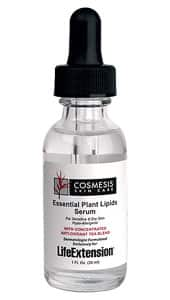- Science & Research
- Science News
- Newsletter
- 2013
- June 14

Newsletter
Newsletter
Dietary Supplements And Exercise Associated With Lower Heart Disease Risk In Women
Dietary supplements and exercise associated with lower heart disease risk in women
Friday, June 14, 2013. In an article published online on June 7, 2013 in the Journal of Clinical Nursing, researchers from Taipei Medical University in Taiwan report a reduction in the incidence of coronary artery disease (CAD) in middle-aged women who engaged in exercise or used dietary supplements. The study included 65 women whose age averaged 56.2 years. Cardiac catheterization revealed the presence of coronary artery disease in 31 subjects. Questionnaire responses provided data concerning medical conditions, family history of coronary artery disease, the use of hormone replacement, physical activity levels, and the intake of dietary supplements over the preceding year, including multivitamins, B-complex, individual B vitamins, vitamins C, D and E; calcium, iron and others. Blood samples were analyzed for fasting glucose, lipids and additional factors. Subjects with coronary artery disease had a greater incidence of elevated diastolic blood pressure, fasting blood glucose and diabetes in comparison with women who did not have CAD. The percentage of women without heart disease who used dietary supplements was more than double the percentage of those with CAD. Multivitamins, B-complex, calcium and vitamin D were the most common supplements reported. Adjusted analysis of the data uncovered a 72% lower risk of coronary artery disease in supplement users compared to nonusers and an 84% lower risk of CAD among those who engaged in physical activity in comparison with inactive women. Authors C. C. Tsai and colleagues remark that by reducing lipid peroxidation and free radical damage, vitamins C and E, and other antioxidants help protect the heart's blood vessels. In addition, studies have found a reduction in low-density lipoprotein cholesterol and triglycerides in association with increased vitamin C intake. Furthermore, B vitamins can help prevent increases in serum homocysteine, which damages the lining of the vessels, lowers nitric oxide levels and alters platelet activity. "It is clear that supplement use and physical activity can significantly predict CAD; therefore, middle-aged women are encouraged to take appropriate supplements and engage in physical activity in order to prevent CAD," the authors conclude. |
||||||||||||||||
 |
||||||||||||||||
|
||||||||||||||||
|
||||||||||||||||
 |
||||||||||||||||
|
||||||||||||||||
|
||||||||||||||||
The latest news on aging, nutrition, and vitamins
Lab
Testing
How Life Extension lab testing works












